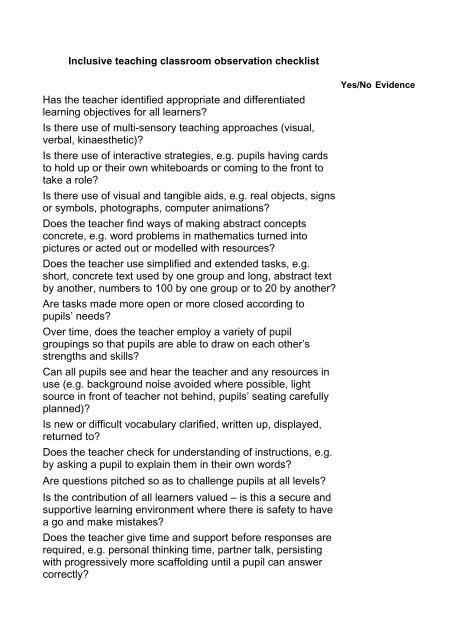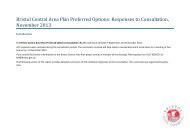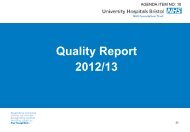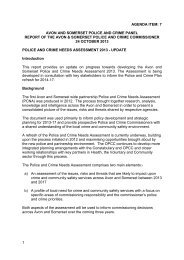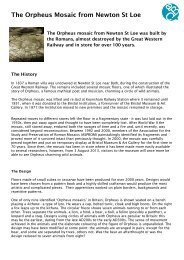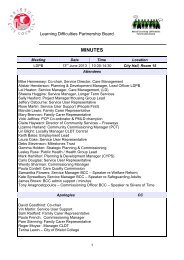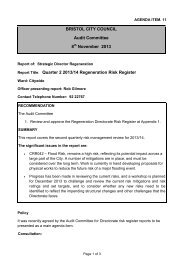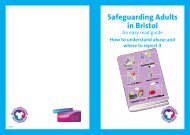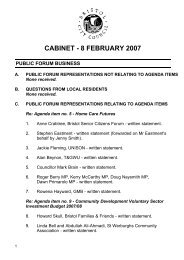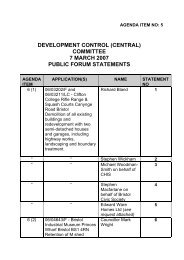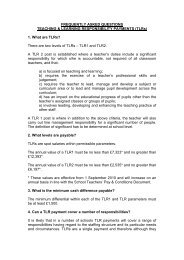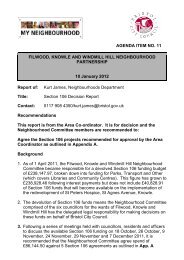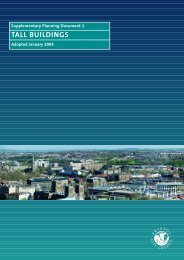Inclusive teaching classroom observation checklist
Inclusive teaching classroom observation checklist
Inclusive teaching classroom observation checklist
Create successful ePaper yourself
Turn your PDF publications into a flip-book with our unique Google optimized e-Paper software.
<strong>Inclusive</strong> <strong>teaching</strong> <strong>classroom</strong> <strong>observation</strong> <strong>checklist</strong><br />
Has the teacher identified appropriate and differentiated<br />
learning objectives for all learners?<br />
Is there use of multi-sensory <strong>teaching</strong> approaches (visual,<br />
verbal, kinaesthetic)?<br />
Is there use of interactive strategies, e.g. pupils having cards<br />
to hold up or their own whiteboards or coming to the front to<br />
take a role?<br />
Is there use of visual and tangible aids, e.g. real objects, signs<br />
or symbols, photographs, computer animations?<br />
Does the teacher find ways of making abstract concepts<br />
concrete, e.g. word problems in mathematics turned into<br />
pictures or acted out or modelled with resources?<br />
Does the teacher use simplified and extended tasks, e.g.<br />
short, concrete text used by one group and long, abstract text<br />
by another, numbers to 100 by one group or to 20 by another?<br />
Are tasks made more open or more closed according to<br />
pupils’ needs?<br />
Over time, does the teacher employ a variety of pupil<br />
groupings so that pupils are able to draw on each other’s<br />
strengths and skills?<br />
Can all pupils see and hear the teacher and any resources in<br />
use (e.g. background noise avoided where possible, light<br />
source in front of teacher not behind, pupils’ seating carefully<br />
planned)?<br />
Is new or difficult vocabulary clarified, written up, displayed,<br />
returned to?<br />
Does the teacher check for understanding of instructions, e.g.<br />
by asking a pupil to explain them in their own words?<br />
Are questions pitched so as to challenge pupils at all levels?<br />
Is the contribution of all learners valued – is this a secure and<br />
supportive learning environment where there is safety to have<br />
a go and make mistakes?<br />
Does the teacher give time and support before responses are<br />
required, e.g. personal thinking time, partner talk, persisting<br />
with progressively more scaffolding until a pupil can answer<br />
correctly?<br />
Yes/No Evidence
Where extra adult support is available for underachieving<br />
pupils, is it used in ways that promote independence, protect<br />
self-esteem and increase pupils’ inclusion within their peer<br />
group?<br />
Are the adults providing the support clear about what the<br />
individual or group is to learn?<br />
Does the teacher work directly with underachieving groups as<br />
well as with more-able groups?<br />
Are tasks clearly explained or modelled – checks for<br />
understanding, task cards or boards as reminders, time<br />
available and expected outcomes made clear?<br />
Are pupils provided with, and regularly reminded of, resources<br />
to help them be independent? (e.g. relevant material from<br />
whole-class session kept on display, word lists or mats,<br />
dictionaries of terms, glossaries, number lines, tables squares)<br />
Is scaffolding used (e.g. problem-solving grids, talk and writing<br />
frames, clue cards) to support learners?<br />
Has the teacher made arrangements (buddying, adult support,<br />
taping) where necessary to ensure that all children can access<br />
written text or instructions?<br />
Has the teacher planned alternatives to paper-and-pencil<br />
tasks, where appropriate?<br />
Does the teacher make effective use of ICT as an access<br />
strategy? (e.g. speech-supported or sign-supported software,<br />
on-screen word banks, predictive word processing)<br />
Is appropriate behaviour noticed and praised or rewarded?<br />
Are all learners involved in setting their own targets and<br />
monitoring their own progress?<br />
Yes/No Evidence


